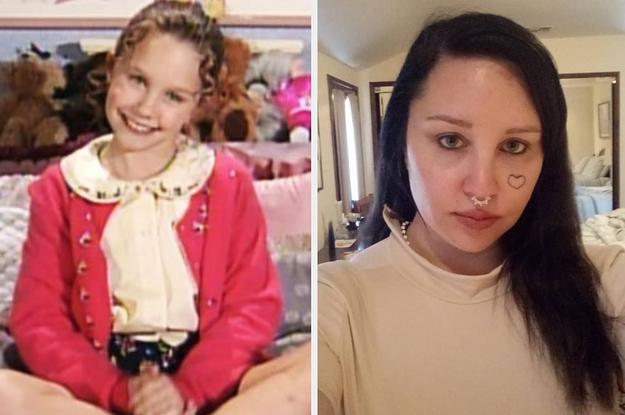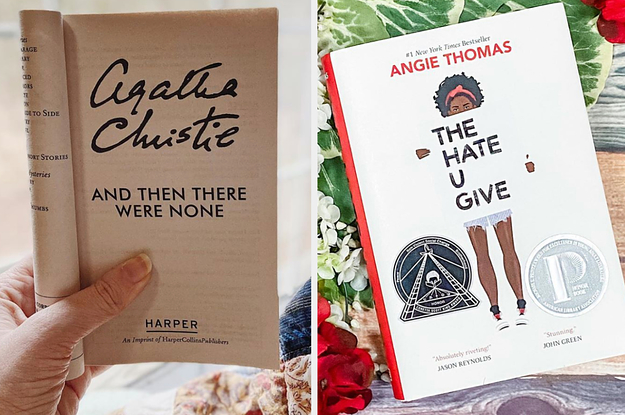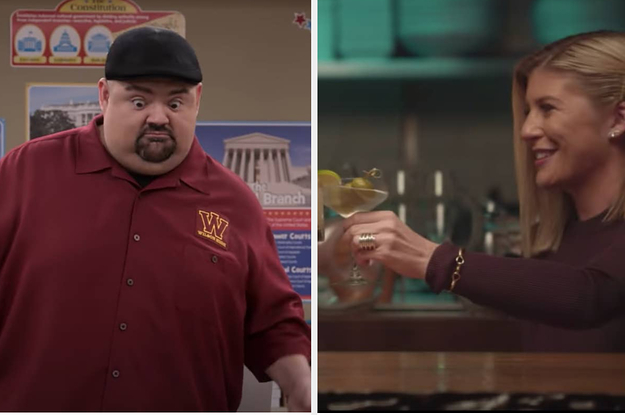Category: Worldwide
Category Added in a WPeMatico Campaign

Oddly, or tellingly enough, when I spoke to Sian Clifford a couple of weeks ago before her miniseries, Quiz, debuted on AMC, we had the same conversation so many people are having right now. The catalyst was different of course: for Clifford, the revelation around media bias and accepting the stories that are told to us came after reading creator James Graham’s script, which rehashes a real-life decades-old scandal centered around a popular reality competition show. For so many others, this questioning of the truth has emerged thanks to incidents of police brutality and racial profiling.
There’s no comparison, but there is a thread, one that Quiz explores in-depth with only three episodes. The series finale airs later this month and manages to tie the story of the show’s leads — an average British couple played by Clifford and Succession’s Matthew Macfayden, who are accused of cheating during an appearance on Who Wants To Be A Millionaire — to some of the same issues we’re facing now: issues of trust and media bias and questioning the status quo. We spoke to Clifford about revisiting this very British scandal, confronting her own bias, and what people can learn from this gripping story.
This cheating scandal was a much bigger news item in the UK. Do you remember watching it play out?
Absolutely. It was such a big scandal. I was a teenager when this was going on. You couldn’t escape it. It was everywhere and the show was so huge. That’s why this story was huge, ultimately. This was something that everyone watched with their family. A third of the country was watching it at its peak. It was event television. You made sure you watched it every night, so you had something to talk about the next day. It was a really hot talking point.
Reexamining the story now, has working on this show changed your opinion of what happened?
Well, yeah. There was absolutely no question at that time and that was how it was represented to us. Honestly, that wasn’t a time where we ever questioned our media or our news and what we were being fed. Now, it’s completely the opposite where we distrust everything, which is a theme that obviously James [Graham] is exploring with this project — when those lines started to blur when constructed reality became mainstream viewing and all of that. As soon as I read James’ script though… you don’t have to dig very deep into this story to realize how contentious it is and how biased the reporting was. My empathy with them was immediate. Also, as an adult, you consider people’s humanity and the cost to their lives that this experience created. I was shocked and appalled to read about what had actually happened to them and how they were treated. As soon as you look at it from that perspective, it raises a lot of other questions about the whole case.
If anything, this story feels relevant because we still treat our news reporting like it’s entertainment.
Yeah, the news is a television show, lest we forget.
True.
One of the things that I love about this show is how it exposes editing, which so many people are unfamiliar with. The idea that when Diana coughs that could have been taken from any point in the show and placed there. I think, understandably, of course, if you’ve never been on a television set, you don’t know that’s how it works. Even that idea about editing very subtly points to how the things that are presented to us can be grossly manipulated in order to force us to look in a certain direction.
It also doesn’t help that we had a tragedy here that understandably overshadowed what happened to this couple.
Yeah, you’ll know this from the show, if we’ve done our job properly, but his performance was the two days prior to 9/11, which is why this story got lost in the news in the US. That moment in history, I believe, has contributed to where we are now along with everything else that was going around at that time. I think that is something that James certainly wanted to capture. There’s that brilliant moment where Paddy Spooner and Paul Smith finally meet. He said, “The bottom’s falling out of the truth market.” I just thought it was a very pertinent idea to be discussing now, because I think there is so much about that period of time that could answer some questions as to why we are where we are now.
Even though this is clearly a drama, there are moments of comedy here. Did you go looking for those or did they just appear organically?
I think what I love about this — what I love about Succession, what I love about Fleabag is I feel like there’s this new genre, and Atlanta does it as well, that’s pushing against the categories as we currently know as comedy and drama. I think what we are demanding as an audience right now are much more complex stories that are much more human. When you start getting to the heart of humanity, in that way, that’s when things are hilarious that maybe shouldn’t be because they’re awkward and they’re uncomfortable James wrote these people as human beings who had only, prior to that, been painted as these pantomime villains. I think that immediately draws you into their story and their experience. That’s why it becomes so heartbreaking because these two people Charles and Diana, in terms of this narrative, have never, ever been considered as human beings before. I think for people to suddenly go, “Oh my God, that is what they were going through whilst we were laughing at home,” I think it holds a mirror up to how we treat one another, how we consume our press. I think it’s really important that we question that. I think we need to change journalism and change how things are reported.
AMC’s ‘Quiz’ airs on Sunday nights at 9:00pm EST.
Over the past couple of weeks, artists have used the talents they’ve been blessed with to not only show they relate and understand the frustrations of their fans, but to help them find comfort in hard times. Meek Mill aimed for this with his “Otherside Of America” single, while T.I. followed suit on his “They Don’t” single with Nasty C. DaBaby went back to his old work to achieve this goal as he updated his “Rockstar” song with a verse on police brutality and Leon Bridges reflected on the racism he experienced in the past on his Terrace Martin-featured single, “Sweeter.” Adding his own work to the mix, Lil Baby returned with a new single.
Offering a hand to those have who have experienced police brutality or those who are frustrated with its continuation, Lil Baby drops his new single “The Bigger Picture.” Announced hours prior to its release, the song also finds Lil Baby detailing some of his distaste towards police after a few experiences of his own. As for the song itself, Lil Baby reminds listeners that the issue at hand is with the system as a whole as that a change to make things right won’t happen overnight, but a start is needed somewhere. Lil Baby will also donate all proceeds from the song to the Black Lives Matter movement.
Still riding high off the release of his My Turn deluxe album, the song touches down a week after Lil Baby and Gucci Mane connected for “Both Sides.”
Press play on the video above to hear “The Bigger Picture.”
Arriving with great news for fans, news that was welcomed with open arms by the entire hip-hop community, Pop Smoke’s manager, Steven Victor, announced last month that the late rapper’s debut album would arrive in mid-June. The announcement followed constant reports on the album that detailed its possible features, executive production from 50 Cent, and more. While the record was slated to arrive tonight, earlier this week Victor returned to say that the album, titled Shoot For The Stars, Aim For The Moon, would be pushed back nearly a month “out of respect of the [Black Lives Matter] movement.” However, to not make the day a complete waste, he revealed a new single would take the album’s place.
As promised, a new Pop Smoke single has arrived by the title of “Make It Rain.” Upon its announcement, Victor revealed that an artist would feature on the song, but their name would be held back until shortly before the song’s arrival. Keeping to that promise, Rowdy Rebel was revealed as the guest act on the song. Rowdy Rebel was infamously incarcerated with Bobby Shmurda back in 2016 on several charges and set to be released by the end of the year. As for the song itself, it brandishes the high octane energy fans loved to see from Pop Smoke while allowing them to hear Rowdy again as he raps his verse over the phone.
Press play on “Make It Rain” in the video above.
Shoot For The Stars, Aim For The Moon drops 07/03 via Republic.
Musically, 2020 has been a fairly quiet year for Post Malone. The “Circles” singer has watched his Hollywood’s Bleeding album hold on top-10 spot on the Billboard albums chart while teasing the arrival of a possible “quarantine album.” The lone piece of music from Post Malone to arrive this year came on Justin Bieber’s Changes album, where the two worked together on “Forever.” Returning with his second guest appearance of the year, Malone lends a hand to Tyla Yaweh’s latest release, “Tommy Lee.”
Malone and Yaweh have been connected for quite some time. Yaweh is currently signed to Malone’s London Entertainment label which Malone owns alongside Dre London. Yaweh also served a supporting act for Post Malone’s Runaway Tour, which began in the fall of 2019 and came to an early end in March due to the coronavirus. “Tommy Lee” stands as Yaweh and Malone’s first collaboration, and on the track it’s clear that Yaweh aims to make a record that won’t be leaving our heads anytime soon. A smooth melody with a clean rhyme scheme, the song is only aided by Malone who falls in line with the song’s agenda as he delivers on its second verse. The single may serve as the lead single to Yaweh’s upcoming sophomore album which he revealed is slated for a summer 2020 release.
Press play on “Tommy Lee” in the video above.
Tekashi 69 began the week getting ridiculed for an unreleased song as he played a preview of his “Locked Up” remix alongside Akon in his home studio. The backlash would continue into the workweek as Tekashi revealed that his next single, “Trollz,” would feature Nicki Minaj. Among the mass of social media, the reception of the song’s announcement was mixed as some fans questions why Nicki received a worse response compared to Akon, while others used the song as an additional reason for being fed up with Tekashi. With the reactions dissipating for the time being, Tekashi and Nicki have delivered the song as promised.
The single, which was originally set to be released on May 29, was delayed “out of respect” for the George Floyd protests taking place all over the country. Prior to its release, Tekashi and Minaj revealed that proceeds from the single would be donated to The Bail Project Inc., a fund that “provides free bail assistance to low-income individuals who can’t afford to pay bail while awaiting their trial,” as Minaj said in an Instragram post. Paired with a music video that finds him in the same colorful setup as his “Gooba” single, Tekashi and Nicki have a blast with a pool, some cereal, money, and few other models.
Nicki Minaj explains why she worked with 6ix9ine even though he snitched
She says there’s a difference between the streets and the music industry pic.twitter.com/YtPeKXg667
— Complex Ambition (@ComplexAmbition) June 12, 2020
Moments before the song’s arrival, Nicki further explained why she worked with Tekashi citing a difference between “street n****s” and “rappers.” The single also followed Tekashi’s accusations against Billboard where he said they were manipulating their charts, blocking him from a top-2 position on the singles charts.
Press play on the video above to hear “Trollz.”
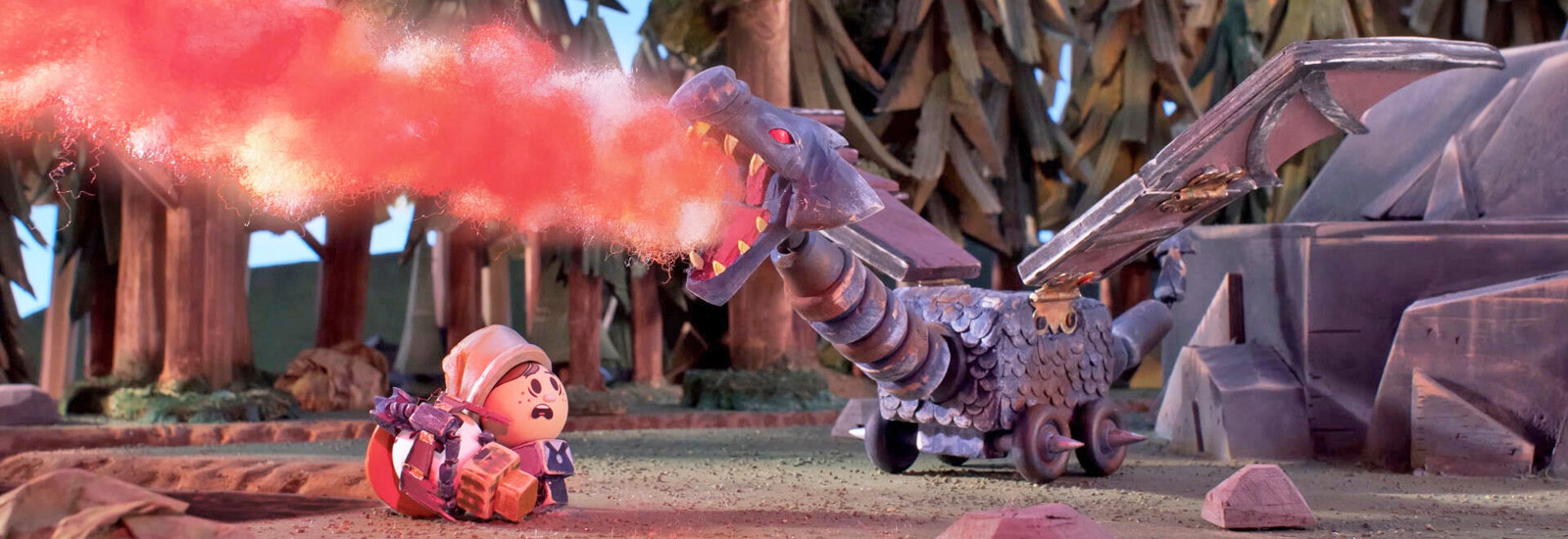
Like the other leading streamers, Hulu‘s attempting to get serious with its animated original offerings geared toward adults. There’s the promising-looking Solar Opposites coming soon from Rick and Morty co-creator and voice wizard Justin Roiland, and then there’s Crossing Swords, created by Robot Chicken producers John Harvatine IV and Tom Root. The show pulls out the visual stops with some of the finest stop-motion animation techniques, at times popping off the small screen almost as beautifully as Laika’s Coraline or Aardman’s Wallace & Gromit: The Curse of the Were-Rabbit.
Sadly, that’s where the charm exhausts itself, because for every dash of gorgeous, cotton-candy-like burst of dragon fire, there’s an overly plentiful supply of penis jokes. Not that penis jokes are bad, but these start to feel like profanity for the sake of profanity.
I suppose that’s not too much of a surprise for a show named after a sexual euphemism, but it would be sweet to have a dash of depth in addition to what feels like reaching for low-hanging fruit. Any substance atop the show’s crudeness would help justify its clear investment in visuals. Instead, the shock factor is favored over characters who are worth following, beyond wondering who shall get decapitated (yes, it’s also a gore fest). This sort-of vulgarity was once startling, back in South Park‘s early days — bless Trey Parker and Matt Stone — and even later in the duo’s Team America: World Police. Yet as Parker and Stone realized, one simply must inject context into the equation. Mature audiences enjoy a sprinkling of wit, too!
Crossing Swords does not hit that mark. Instead, it sprints out of the gate with context-free lowbrow jokes and nudity, both visually and verbally rendered, and never takes its foot off the pedal. Further, the gore is gratuitous in every sense of the word. It’s a strangely discombobulating affair, unless one wishes to place the ten episodes on mute and let them play in the background as mind-numbing escapism. This tactic wouldn’t be so bad, really, if not for a semi-serialized format. And that’s where this project grows more confounding. With Adult Swim’s Robot Chicken, the sketch-comedy approach worked with the drop-gross-jokes-and-split approach. Here, wonders exactly what this show’s themes might be, and why we should care about these players.
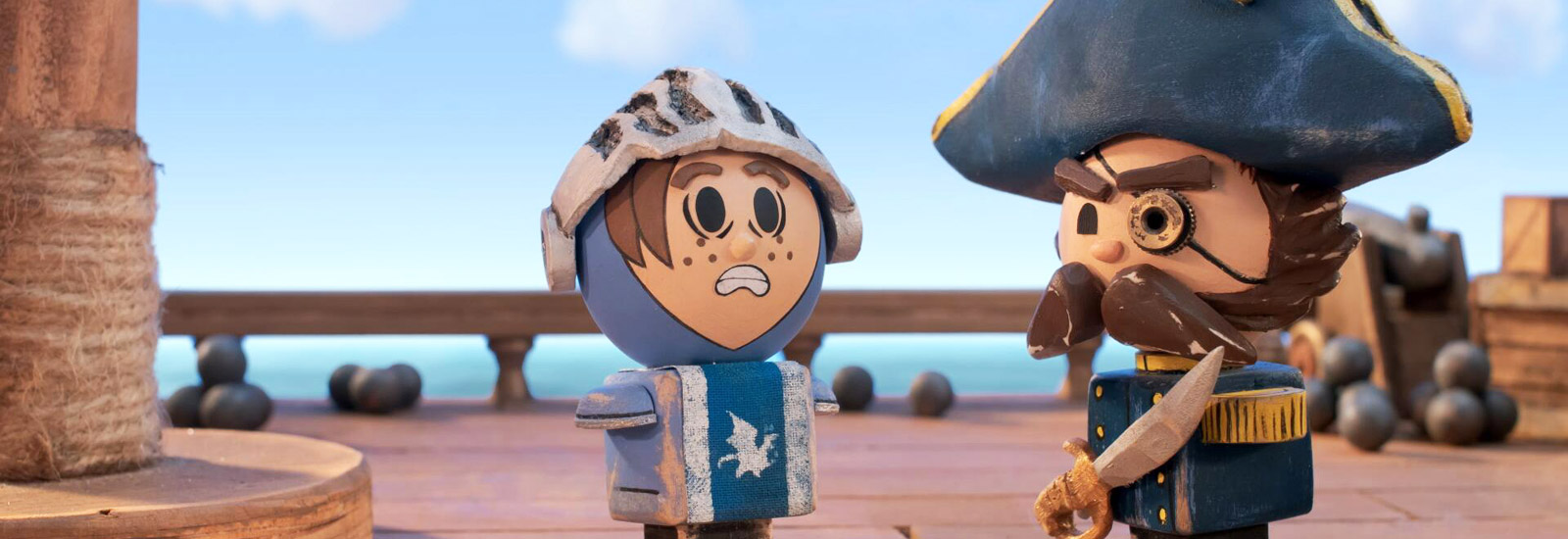
The set-up is super simple: The show does not shy away from Game Of Thrones fantasy vibes, a decision that might not be wise in retrospect, given that every hot take about the HBO show’s final season has already been run into the ground. Still, it’s happening here with a kingdom full of largely unlikable royal characters, who often resort to well-aimed crotch shots and MF-bombs to one-up each other. The protagonist, a peasant named Patrick (voiced by Nicholas Hoult), holds grand dreams to be the king’s squire. However, he enters the pleasure-seeking court proceedings aghast, much more than the show’s audience, and he remains that way until season’s end.
Any seasoned audience member will find it difficult to feel sorry for Patrick’s plight because TV viewers have already endured much of what he witnesses, and the show amps up bawdiness without providing incentives for viewers to stick around. This series doesn’t go anywhere, although a few events happen throughout this season. Episodic flourishes (like a Beast Feast musical festival and a Kraken Week) appear within the serialized structure, and a soap-operatic assassin mystery goes down as a protracted joke. Again, if you simply want chaotic filler-noise that looks pretty (and pretty gross), this might be up your alley. But don’t expect world-building, which presents doubt for future seasons with voice talent from Tony Hale, Luke Evans, Adam Pally, Alanna Ubach, Tara Strong, Yvette Nicole Brown, and Felicia Day
The most frustrating aspect of Crossing Swords, overall, is its refusal to attempt humor beyond profanity — something that not only South Park has recognized a need for, but that Netflix’s Big Mouth, Adult Swim’s Rick and Morty, FX’s Archer, and so many other adult-focused animated TV series have conquered. Crossing Swords fails to reach the existing standard and doesn’t offer much beyond meticulously crafted visuals, with every chip of paint looking on-point, even as the characters ride on toy horses and manage to wield swords despite having no arms. Pulling off these visual touches was no minor feat, but that attention to detail comes across as unsettling without acting in service to something greater.
Hulu’s ‘Crossing Swords’ streams on June 12.

